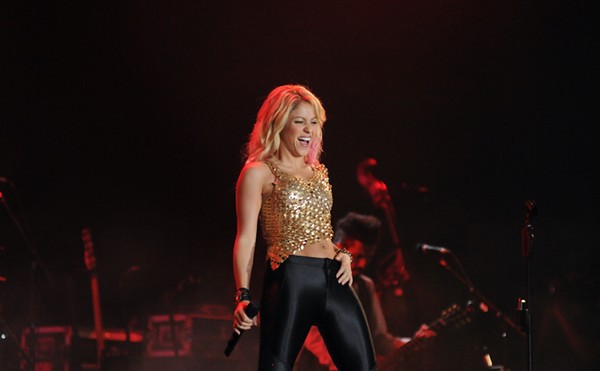Smart has been a rotating fixture on the San Antonio music scene since he was in his teens in the early '80s, periodically relocating to Dallas and New York City, but eventually resettling. His major manifestations - Lung Overcoat, Thirteen, and Robot Boy - have all been scene makers in their own respect. Smart learned to sing and play the bass simultaneously, so despite his vocalist roles, traditional frontman status was not so much a goal as a sidebar. "I've always been into the idea of a Beatles-like group, where everybody served a function: everybody contributed, everybody wrote, everybody was equally important."
When it comes to his creative evolution, Smart seems to be best motivated by cataclysmic change. "At 32, everything in my life had basically collapsed. The long-term girlfriend split on me, `my band` Thirteen broke up, and suddenly I found myself sitting in a room alone with a guitar. At first I thought I could just stop playing music, but that was ridiculous. Instead, I took a year off from being in a band - for the first time since I was 16 years old - and decided to make a go of it as an acoustic solo artist."
One year to the day after his personal decision, Smart changed his mind and formed another band: the Mechanical Walking Robot Boy. "I hated playing alone. I never felt comfortable. Even though being in a band had become crazy or weird or uncomfortable at times, playing music was always sort of fun, in a sick sort of way."
In a band, audience attention is diverted, divided evenly across the stage. Even today Smart is a reluctant frontman. It wasn't until recently that he stopped hiding behind a guitar on stage, a tendency that has followed him since he first began playing music.
"I was never nervous about singing, but I was always nervous about playing the guitar. I just was never that good at it. Every now and then, though, without the guitar I think to myself, 'What the hell am I doing with my hands?'" Sometimes, if you look hard enough, you can actually see the moment in which Smart sheds his inherent self-consciousness, visibly engages in a strange sort of self-parody, then rather abruptly returns back to earth.
Robot Boy's current lineup does differ from the original, but the band's core remains: Smart on vocals, Eric Sanden on guitar, and Jamie Roadman on drums. Newer additions include bassist Roland de la Cruz (of Los Mescaleros) and Rod Castro on keyboards. The group's dominant sound, however, remains a strange '80s, Eno-inspired approach to '60s garage and lounge music - rehearsed yet fluid, dark and aggressive, but coolly detached.
Robot Boy is currently in the process of recording its second album. The first was a baroque melange of Velvet Underground and Ziggy era, Bowie-inspired chaos cheerfully entitled Baby Baby Baby We're All Doomed, recorded and mixed by Smart and released on his Compulsive label. The new album, however, is being worked on by the band
| THE MECHANICAL WALKING ROBOT BOY 8:30pm Sunday, March 30 Sin 13 1902 McCullough 785-9461 |
Experiences engineering Robot's first record and recording with the Love Machine - juxtaposed with Smart's new, stripped-down stage role — should contribute to what may be a new direction on the upcoming record. Love Machine, like Doomed, is liberally peppered with samples, but shows the restraint and precision that only comes with experience.
"The first album was a non-stop barrage of sound," Smart says. "No empty space. Ever. I'm not an engineer. Getting something to sound good isn't intuitive, it's technical, and frankly, anything technical bores me. So my approach to recording was really haphazard: recording in different rooms, using multiple microphones, hacked software with no manuals. It was fun, but very scattered and very random — and difficult.
"There's nothing like having to set up the microphones, try get the sound right, push record, run out of the control room, around the house and into the garage to pick up my guitar and play the song. I like to mix things, I like to arrange, I like to screw stuff up. But I don't like to have to get it RIGHT. You have to have people like Rod and Roland for that. Some things just have to be done properly." •















